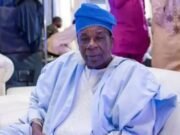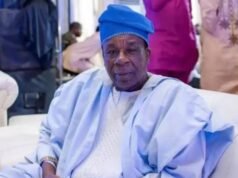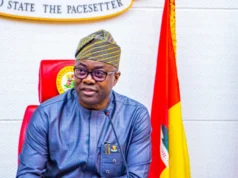‘Seyi Makinde, governor of Oyo State, has taken an apparent step to make the Alaafin of Oyo, Soun of Ogbomoso and Olubadan of Ibadanland co-chairmen of the Council of Obas and Chiefs, challenging the supremacy of the Oyo monarch, an arrangement that replicates the retaliatory move against the Alaafin last made by former Governor Alao Akala.
A bill, exclusively seen by OYOINSIGHT.COM, is pending in the House of Assembly intending to effect an amendment that will see Alaafin share chairmanship with the Ogbomoso and Ibadan monarchs.
The development is coming amid the renewed controversy over supremacy between the Ooni of Ife and the Alaafin.
For decades, the late Alaafin, Oba Lamidi Adeyemi III, fought to assert his supremacy as the permanent chairman of the council of obas in both the present Oyo State and the old Oyo State where he was involved in intense rivalry with the late Ooni Okunade Sijuwade. At some point in the old Oyo State, Alaafin Adeyemi had to drag former Governor Bola Ige to court to prevent him from appointing the Ooni as the permanent chairman of the council.
However, the new move by the leadership of the Oyo State House of Assembly to strip the throne of the Alaafin of Oyo as the permanent chairman of the Oyo State Council of Obas and Chiefs, is a replication of the retaliatory action of late former Governor Adebayo Alao Akala.
In a new proposal titled Council of Obas and Chiefs (further amendment) bill, 2025, sponsored by five lawmakers including the Speaker, Adebo Ogundoyin, the Assembly is set to pass into law an arrangement that “the Chairmanship of the Council shall be permanent and concurrent to the Alaafin of Oyo, Olubadan of Ibadan and Soun of Ogbomoso.”
The bill also mandates that “in any meeting of the Council, the Alaafin of Oyo shall preside, in the absence of Alaafin of Oyo, the Olubadan of Ibadan shail preside. If both Alaafin of Oyo and Olubadan of Ibadan are absent, the Soun of Ogbomoso shall preside.”
This move, OYOINSIGHT.COM can authoritatively report, is a return of the controversial piece of legislation instigated by late former Governor Alao-Akala.
This newspaper recalls that in 2011, after losing his re-election bid to late former governor Abiola Ajimobi of the Action Congress of Nigeria (now defunct), Alao-Akala influenced the State House of Assembly to amend the law and strip the late Alaafin of Oyo, Oba Lamidi Adeyemi of his permanent chairmanship of the Council of Obas and Chiefs because of the role the monarch played in the failure of his re-election bid.
OYOINSIGHT.COM exclusively gathered that this move by the State Assembly to split the permanent chairmanship of the council between three monarchs does not sit well with many members of the state council, particularly the Oke-Ogun Council of Obas and Chiefs.
Craving anonymity, one of the monarchs told OYOINSIGHT.COM that a consensus that the Alaafin of Oyo should be the single and permanent head of the Council was reached early this year.
Their position, this newspaper gathered, is “in view of the position of the Alaafin of Oyo in Yoruba and having regard to the fact that, the Alaafin of Oyo was instrumental to the wearing of the crown by both the Olubadan of Ibadan and Soun of Ogbomoso.”
In contrast, the monarchs proposed a tripartite leadership arrangement in which the Alaafin is the permanent President of the council, the Chairmanship position is rotated for a term of two (2) years between the Olugbon of Ile Igbon; Okere of Saki; Aseyin of Iseyin; Eleruwa of Eruwa; Olubadan of Ibadan, and Soun of Ogbomoso, and a Vice chairmanship rotated between a host of other monarchs.
Reacting to the development, a socio-cultural group, Isese Yoruba Renaissance Movement described the move as a misrepresentation of the state’s customary law.
In a statement made available to OYOINSIGHT.COM by their Convener, Esugbemi Sangoleke, members of the group demanded that the bill should be rescinded.
“We fear that the proposal may be driven by extraneous considerations and political motives rather than a genuine desire to preserve and promote our cultural heritage,” they argued.



































